They have existed since the beginning of time, as caregivers and helpers. However, it was only in the late 16th century that the women (and men) in white received their official title of ‘nurse’. Prior to the 20th century, only members of religious communities were trained as nurses. Nursing as a profession began with the English nurse, Florence Nightingale. Called the founder of modern nursing, she brought together a band of women, whom she personally trained, to take care of soldiers in the Crimean War. Nightingale laid the foundation of professional nursing with the establishment of her nursing school at St Thomas’ Hospital, London in 1860. It was the first non-religious nursing school in the world, welcoming women of all faiths who had a desire to serve humankind.  Although she did not, herself, write it, the Nightingale Pledge, recited by new nurses, was inspired by her work. Written in 1893 by Lystra Gretter, the Nightingale Pledge is loosely modelled after the Hippocratic Oath that doctors take. In the Nightingale Pledge, nurses promise to adhere to the code of ethics of the nursing profession, to cooperate with other members of the nursing team, and to carry out to the best of their ability the instructions of the physician. The Nightingale Pledge also holds nurses against evil or malicious malpractice, and the revealing of confidential information that may come to a nurse’s knowledge in the course of her work. Nurses today assume many more responsibilities. Apart from taking care of the sick, the disabled and the critically-ill, nurses play a big role in community healthcare. Centuries after Florence Nightingale’s death, the world continues to remember her, with the annual International Nurses Day celebrated around the world on her birthday of 12 May. In celebration of International Nurses Day, we speak to some of IMU Healthcare nurses.
Although she did not, herself, write it, the Nightingale Pledge, recited by new nurses, was inspired by her work. Written in 1893 by Lystra Gretter, the Nightingale Pledge is loosely modelled after the Hippocratic Oath that doctors take. In the Nightingale Pledge, nurses promise to adhere to the code of ethics of the nursing profession, to cooperate with other members of the nursing team, and to carry out to the best of their ability the instructions of the physician. The Nightingale Pledge also holds nurses against evil or malicious malpractice, and the revealing of confidential information that may come to a nurse’s knowledge in the course of her work. Nurses today assume many more responsibilities. Apart from taking care of the sick, the disabled and the critically-ill, nurses play a big role in community healthcare. Centuries after Florence Nightingale’s death, the world continues to remember her, with the annual International Nurses Day celebrated around the world on her birthday of 12 May. In celebration of International Nurses Day, we speak to some of IMU Healthcare nurses. 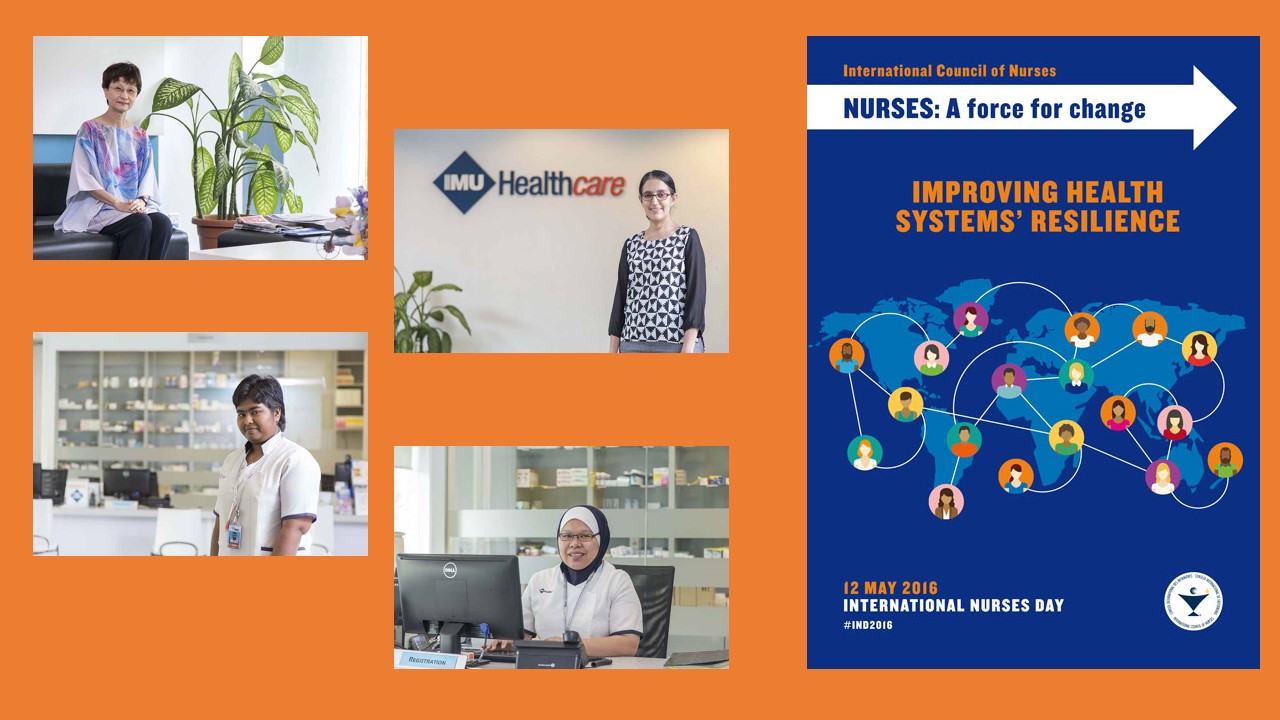
IMU Healthcare nurses juggle many responsibilities. They are caregivers, often being the first respondents to a patient’s needs. They help communicate a doctor’s instructions, or present them in a way a patient can understand. During examinations, they stand ready to assist the doctors. Their presence also helps a patient feel more at ease, particularly in the cases where patients need to undress for treatment.
Our nurses are also managers of care. This means that they have the responsibility of coordinating care provided by the various doctors or departments to ensure that all the needs of the patient are being met. Nurses must also act as teachers. Being a teacher to the patient entails assisting patients in gaining knowledge about their health and medications. When patients are confused about certain steps and procedures, our nurses help them to understand what is required in a process.
Meet some of our nurses and read their stories:
Dr Tan Ming Yeong, Diabetes Nurse Educator 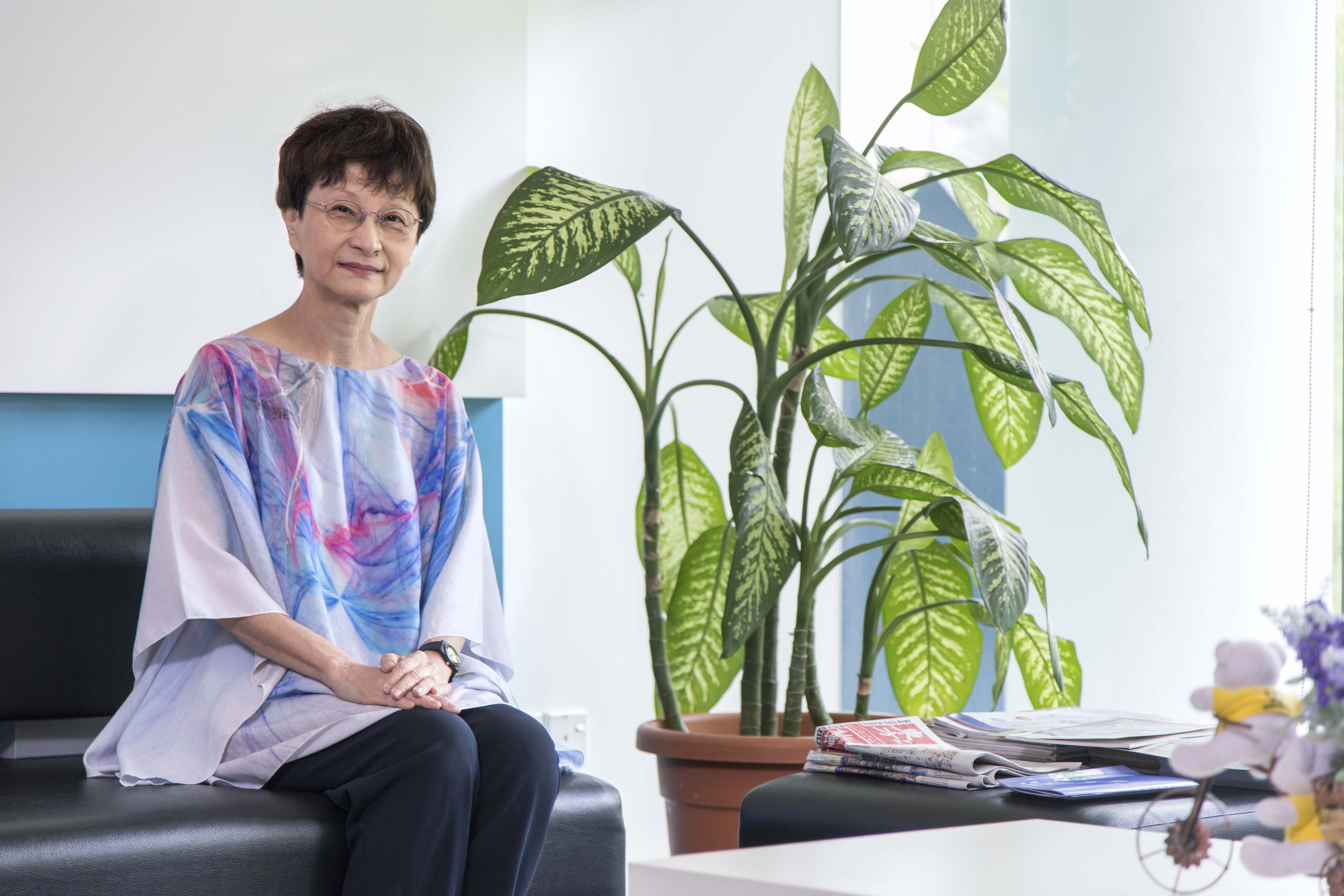 I graduated from Assunta College of Nursing in 1976. Of the 40 years in nursing, I spent 29 years working with people with diabetes as a certified diabetes educator. Till today, I have enjoyed every moment of nursing. I have been with IMU Healthcare for three-and-a-half years. A big part of my role is to work with our clients or people with diabetes and their family members in facilitating their daily self-management of living with diabetes.
I graduated from Assunta College of Nursing in 1976. Of the 40 years in nursing, I spent 29 years working with people with diabetes as a certified diabetes educator. Till today, I have enjoyed every moment of nursing. I have been with IMU Healthcare for three-and-a-half years. A big part of my role is to work with our clients or people with diabetes and their family members in facilitating their daily self-management of living with diabetes.
In addition, for my role in IMU Healthcare, I also engage with the public via seminars and conferences to promote the importance of holistic diabetes management to improve clinical outcomes. I believe that as an educator, my role is not to judge any of our clients, but rather, to work with them by providing the knowledge and skills they wish to know in a fun, easy way, so that learning can take place easier. Once something is learnt, it is easier to put it into practice in real life
Paramjit Kaur Banta Singh (Paramjit), Project Manager, Clinical 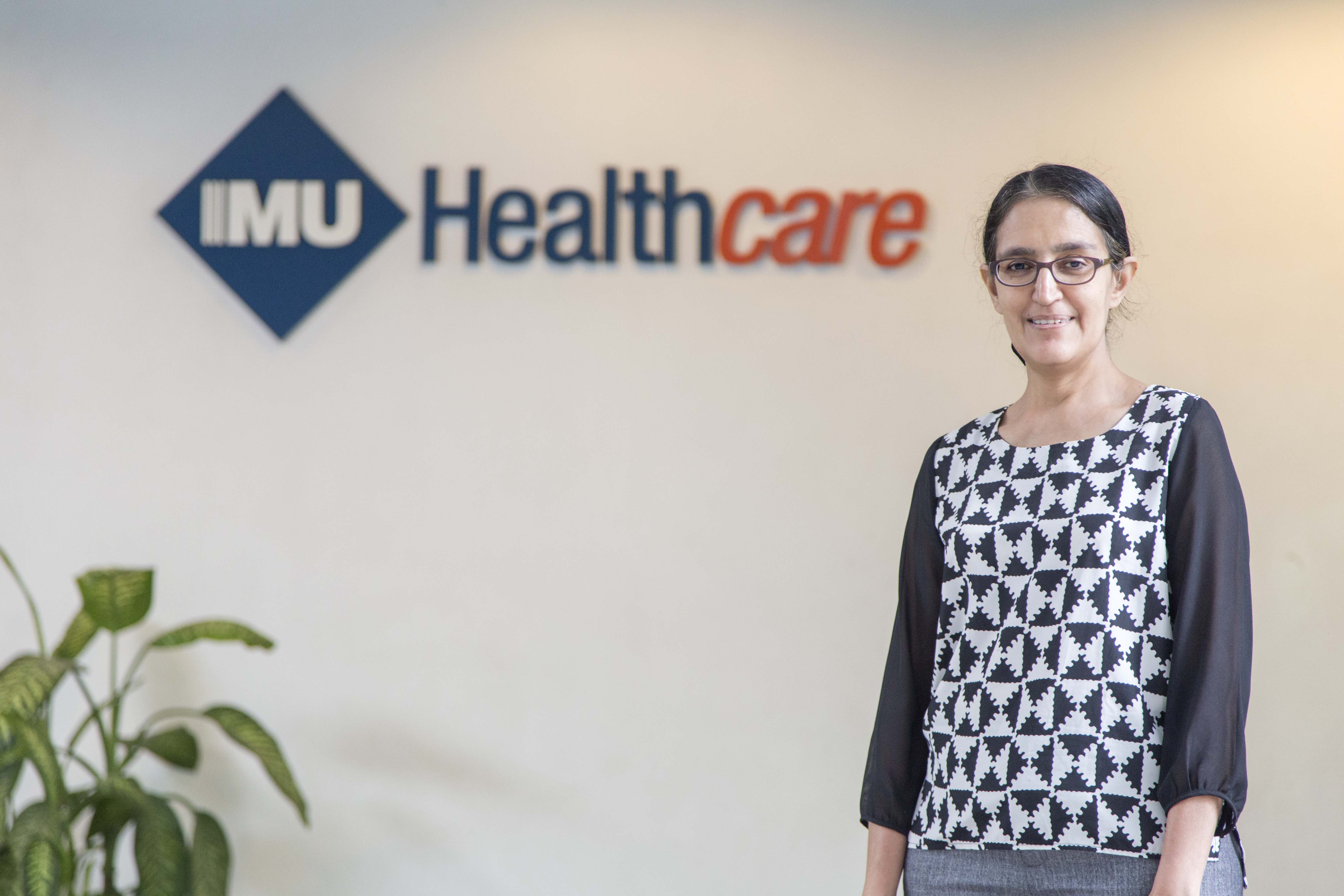 I opted for a career in nursing because I came from a big family. With eight siblings, I needed an education opportunity which did not require a lot of financial expenditure. In those days when one entered the nursing college, they were fully sponsored, with accommodation and a little allowance, which went a long way on easing the financial burden on my parents. While the core values of nursing are the same after all these years, there is a distinct shift because of the introduction of wellness services. Wellness-based health centres don’t treat sick people. They cater for people who want to keep themselves healthy; people who want to get the most out of their days. As such, investigative turnaround times have to be shortened. People come in fully prepared, even having already fasted, and wanting to get their tests over and done with so they can return to their daily routine. There is a lot more diagnostic and investigative procedures done today than in the past. So today, the onus is on nurses to be well-informed about the different processes and procedures and update themselves to keep up with the challenges of caring with the wellness concept. More so with well-informed patients we are taking care of. Nor Azni Mohamed Yunus (Azni), Senior Staff Nurse
I opted for a career in nursing because I came from a big family. With eight siblings, I needed an education opportunity which did not require a lot of financial expenditure. In those days when one entered the nursing college, they were fully sponsored, with accommodation and a little allowance, which went a long way on easing the financial burden on my parents. While the core values of nursing are the same after all these years, there is a distinct shift because of the introduction of wellness services. Wellness-based health centres don’t treat sick people. They cater for people who want to keep themselves healthy; people who want to get the most out of their days. As such, investigative turnaround times have to be shortened. People come in fully prepared, even having already fasted, and wanting to get their tests over and done with so they can return to their daily routine. There is a lot more diagnostic and investigative procedures done today than in the past. So today, the onus is on nurses to be well-informed about the different processes and procedures and update themselves to keep up with the challenges of caring with the wellness concept. More so with well-informed patients we are taking care of. Nor Azni Mohamed Yunus (Azni), Senior Staff Nurse 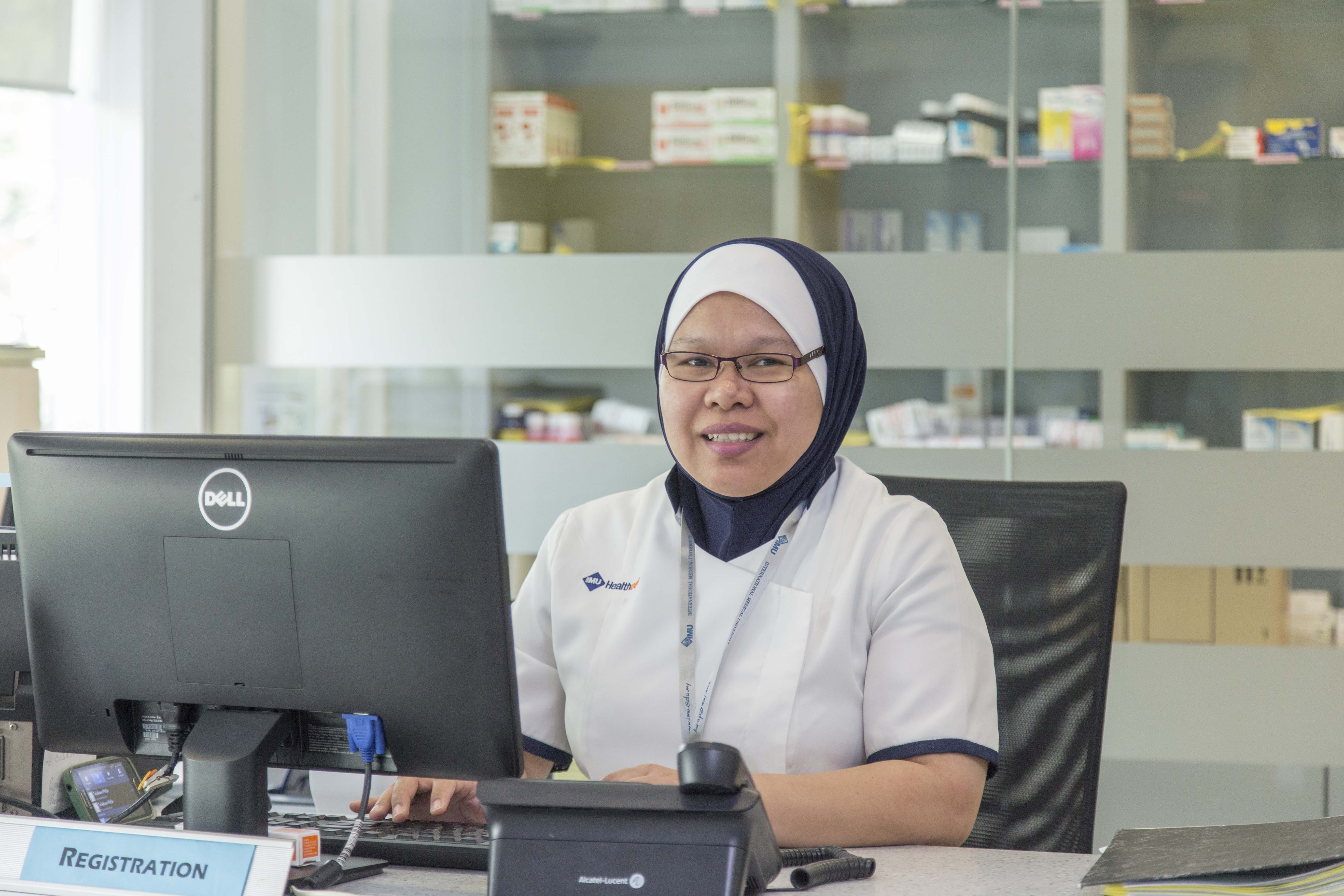 I think nursing is one of the most humane of all careers. It is about delivering personal care and developing a patient-nurse bond. There is nothing more rewarding than bedside nursing. However, having worked in four hospitals before joining IMU Healthcare, I realise that wellness nursing is a big, new avenue. Here, the senior staff nurses oversee the operations of the clinics, managing staff force, and scheduling patients’ appointments. It is a more desk-bound job than bedside nursing, but there are definitely new skill sets to learn. “Even if a nurse is not physically at a patients’ bedside, the qualities which make a good nurse can be turned towards the administrative side of things. Empathy – the understanding of how patients feel when they are in pain; the ability to apply knowledge of situations: these are things that make a good nurse.
I think nursing is one of the most humane of all careers. It is about delivering personal care and developing a patient-nurse bond. There is nothing more rewarding than bedside nursing. However, having worked in four hospitals before joining IMU Healthcare, I realise that wellness nursing is a big, new avenue. Here, the senior staff nurses oversee the operations of the clinics, managing staff force, and scheduling patients’ appointments. It is a more desk-bound job than bedside nursing, but there are definitely new skill sets to learn. “Even if a nurse is not physically at a patients’ bedside, the qualities which make a good nurse can be turned towards the administrative side of things. Empathy – the understanding of how patients feel when they are in pain; the ability to apply knowledge of situations: these are things that make a good nurse.
This Nurses Day, if I had a wish, I would like doctors in Malaysia to view nurses as co-workers in healthcare, as opposed to just their helpers. When I worked in Saudi Arabia, it was wonderful to experience how doctors looked to nurses for their opinions, seeing how the nurses spent more time interacting with the pa
tient. Another thing I would wish for is more male nurses. Male nurses are sorely needed in places like the OT (operating theatre) and psychiatric ward. Malaysia needs to work through the cultural gender stereotypes and cater to the demand for male nurses.
Dashni Joharaja, Staff Nurse 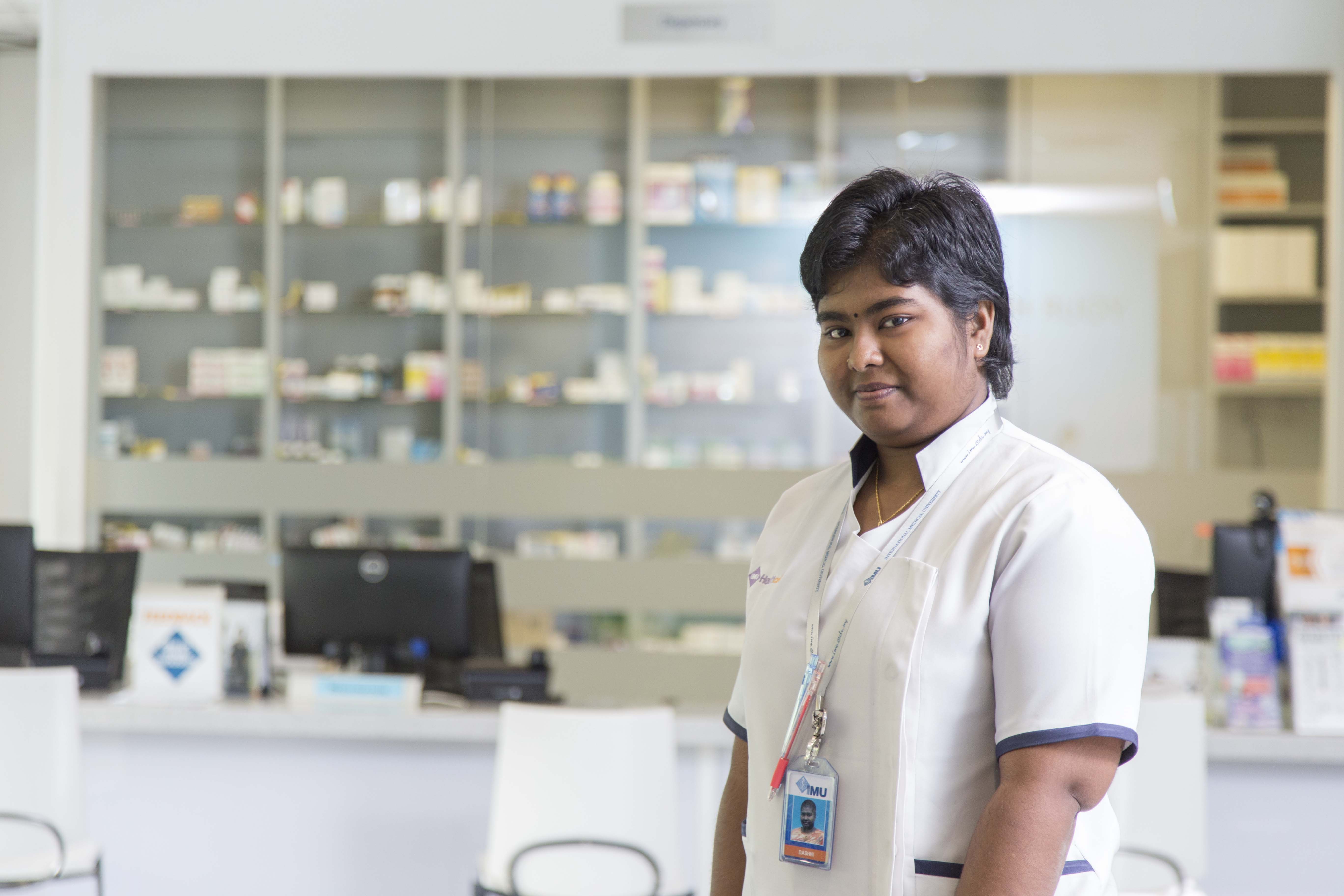 I began my career as a junior staff nurse in a clinic. As a junior nurse, it was more towards patient care. For example, my duties revolve around dispensing medicine, managing wound care, being in attendance when the doctor performs a procedure on a female patient, registering patients and organising the card files. My experience there gave me the confidence to move on as a private nurse at an international school. Although this meant I was in charge of the school clinic and was surrounded by a fulfilling environment, nursing work is only at hand when the children came to the office presenting an injury or an illness. So, I joined IMU Healthcare for a more all-rounded experience. The scope of learning is so much larger here. I work with very senior nurses who have a lot of experience. This has enabled me to improve on certain aspects of my job – for example when taking blood. I was quite happy that the senior nurses were there to assist on my first few attempts. I believe that patients should be put up with as little discomfort as possible. Apart from administrative work, I am frequently involved in nursing procedures such as operating the ECG machines, as well as being more observant between medical emergencies and non-medical emergencies. Although IMU Healthcare is more wellness-based, we have had patients coming to us with difficulty in breathing and chest pains, and I am glad to say we have a great team to provide continuous guidance through all.
I began my career as a junior staff nurse in a clinic. As a junior nurse, it was more towards patient care. For example, my duties revolve around dispensing medicine, managing wound care, being in attendance when the doctor performs a procedure on a female patient, registering patients and organising the card files. My experience there gave me the confidence to move on as a private nurse at an international school. Although this meant I was in charge of the school clinic and was surrounded by a fulfilling environment, nursing work is only at hand when the children came to the office presenting an injury or an illness. So, I joined IMU Healthcare for a more all-rounded experience. The scope of learning is so much larger here. I work with very senior nurses who have a lot of experience. This has enabled me to improve on certain aspects of my job – for example when taking blood. I was quite happy that the senior nurses were there to assist on my first few attempts. I believe that patients should be put up with as little discomfort as possible. Apart from administrative work, I am frequently involved in nursing procedures such as operating the ECG machines, as well as being more observant between medical emergencies and non-medical emergencies. Although IMU Healthcare is more wellness-based, we have had patients coming to us with difficulty in breathing and chest pains, and I am glad to say we have a great team to provide continuous guidance through all.


No approved comments.